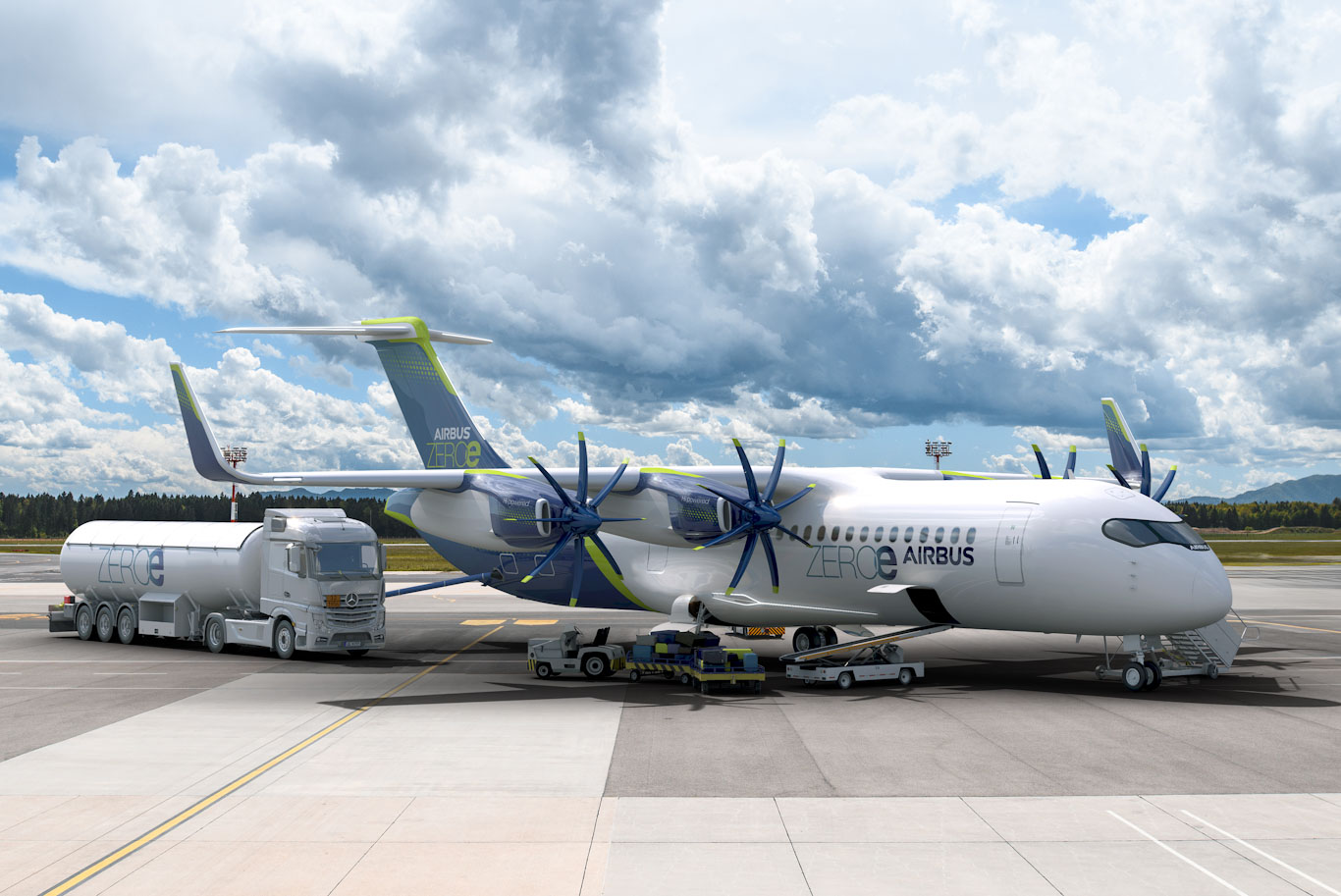Airbus Commits to Hydrogen-Powered Flight for Green Aviation Future
Key Ideas
- Airbus reaffirms its dedication to hydrogen-powered flight for decarbonizing aviation, pivoting to fully electric aircraft energized by hydrogen fuel cells.
- New focus on a next-generation narrowbody aircraft utilizing sustainable aviation fuel and new propulsion technologies for service by the 2030s.
- Airbus is actively involved in projects targeting non-CO2 emissions reduction, sustainable aviation fuel promotion, and nature-based initiatives support.
- Partnership with Air Liquide to address challenges of liquid hydrogen handling and distribution in flight, advancing the technology and testing liquid hydrogen systems.
Airbus has confirmed its commitment to hydrogen-powered flight as a means to reduce carbon emissions in aviation. At a technical briefing in Toulouse, the company presented a new approach focusing on fully electric aircraft powered by hydrogen fuel cells. Airbus is exploring a next-generation narrowbody aircraft that will be powered by sustainable aviation fuel and incorporate new propulsion and construction technologies, aiming for entry into service in the 2030s. The company also highlighted participation in various projects to investigate non-CO2 emissions, promote sustainable aviation fuel, and support nature-based initiatives. Airbus plans to advance research on contrail mitigation and non-CO2 impacts, including participating in programs to study the effects of soot particles expelled from aircraft engines. Through partnerships with Air Liquide, Airbus is addressing challenges related to liquid hydrogen handling and distribution in flight. The company's commitment to hydrogen-powered flight remains strong, with a focus on evolving technology and advocating for regulatory frameworks to enable the operation of hydrogen-powered commercial aircraft.
Topics
North America
Carbon Reduction
Aviation Technology
Sustainable Fuel
Future Of Flight
Aircraft Innovations
Latest News
